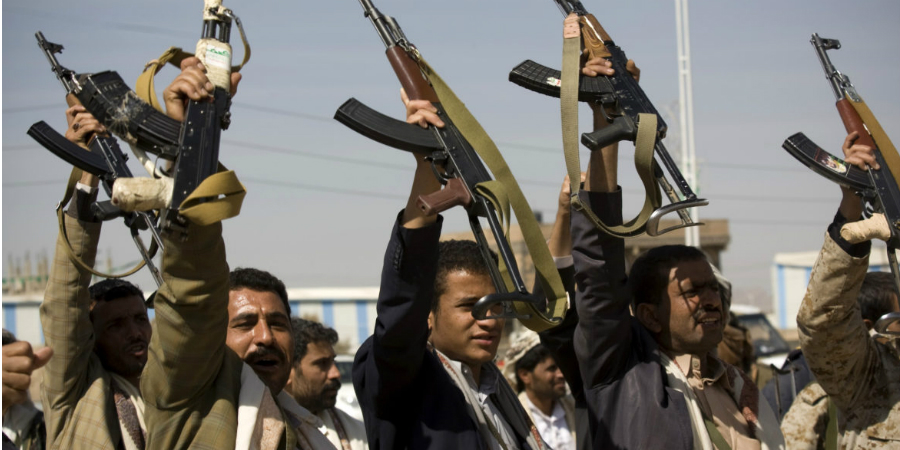In Yemen, the Houthi Strategy Has Promise and Risk
Editor’s Note: This article originally appeared on Order from Chaos.

Editor’s Note: This article originally appeared on Order from Chaos.
The Zaydi Shia Yemeni rebels known as the Houthis are pursuing a complex strategy in their five-year-old war with Saudi Arabia and its allies. On the one hand, the Houthis have finally cooperated with the United Nations peace process and withdrawn some forces from the crucial port of Hodeida. On the other side, they fired long-range armed drones at Saudi oil targets in the Eastern Province this week in a dramatic escalation in their battle to take the war inside the kingdom and its allies.
The United Nations negotiated the Hodeida disengagement plan six months ago in Sweden. The Houthis agreed to leave the country’s main northern port and two smaller ones to start a process of prisoner exchanges and other confidence-building steps to wind down the conflict. In practice, the rebels resisted pulling out until last weekend. Now the U.N. has certified that the withdrawal is a reality even as the Saudi-backed Yemeni government is still critiquing the pullout as incomplete. Fighting has continued in the city despite the Houthi withdrawal.
The U.N. needs to establish a credible port authority in Hodeida to import the crucial food and medicine Yemenis need to end the humanitarian catastrophe in the country. It needs more observers on the scene. The majority of the country’s population is suffering from malnutrition and is vulnerable to disease. By withdrawing from the port, the Zaydi Houthis have put the onus for further effort to deescalate on the pro-Saudi government.
But the drone attacks on Saudi oil installations were clearly designed to increase the pressure on Riyadh. The range of the drones exceeded the previous confirmed cases of rebel missile and drone strikes significantly. The Iranians and Hezbollah almost certainly provided critical technical and operational assistance, as the U.N. has said in the past. The Houthis also said that they had local assistance from supporters in the Eastern Province which has a substantial Shia population.
The rebels argue that they have every right to target Saudi installations given the Saudi air war against targets in Yemen, often civilian targets. They have claimed to strike targets in Abu Dhabi before, and the drones used this week make it more likely the Emirates will be targeted again.
The struggle in Yemen and the Arabian Peninsula takes place against the backdrop of escalating tensions between Saudi Arabia and the United States versus Iran. The mysterious sabotage of oil tankers in the Emirati port of Fujairah last Sunday and the early deployment of the USS Abraham Lincoln carrier battle group to the region are further manifestations of an increasingly dangerous drive toward conflict begun by the Trump administration’s decision to violate the Iran nuclear deal (the Joint Comprehensive Plan of Action, or JCPOA). My contacts in Yemen believe that the Houthis had no role in the sabotage which significantly damaged two Saudi oil tankers.
The Houthis enjoy Iranian support, but they make their own decisions. Tehran’s influence on Houthi strategy is sharply limited. The rebels have ignored Iranian advice in the past.
The Saudis blame Iran for all their difficulties, including the quagmire in Yemen. A recent prominent editorial in the Saudi press called for American air strikes on targets in Iran to punish the Tehran leadership. The Saudi crown prince is the leading hawk: He is especially eager to escape responsibility for the disastrous decisions to intervene in Yemen in 2015 and to murder Jamal Khashoggi last October. Mohammed bin Salman has fantasies about being a great military general, his advice on issues of war and peace should not be taken seriously given his track record.
Washington would be wise to open a direct dialogue with the Houthis to better understand their behavior. The rebels are a dangerous spoiler in a dangerous region, which is getting hotter. A dialogue with them would also send a message to Riyadh that the United States will not be dragged into a disastrous war with Iran to serve Saudi interests.





